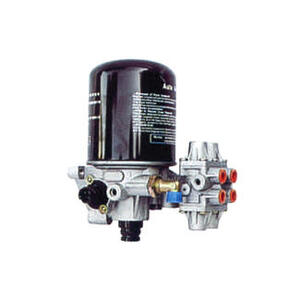Importance of Truck Air Dryers
Corps
It's more important than ever to protect a truck's air system from contamination, because there are more and more on-vehicle technologies making use of that air.
That's why having and taking proper care of an OEM Truck Air Dryers is vital. Installed between the compressor and reservoirs, the air dryer collects and removes solid, liquid, and aerosol contaminants such as water and oil before they enter the air brake system and jeopardize efficient operation.
Oil can contribute to premature damage in a variety of components such as push-pull dash valves, spring brake modulating valves, and brake chamber diaphragms. And oil-deteriorated seals can cause air system leaks that may cost you points during roadside inspection.
Oil contamination can lead to the failure of any system that relies on clean air for proper operation, including the air brake, engine, emission, and drivetrain systems. These systems include a variety of advanced technologies required to meet stricter emissions regulations on vehicles built after 2007 and 2010, as well as technologies that fleets are increasingly adopting to improve productivity and fuel economy, including diesel particulate filters, selective catalytic reduction system and transmissions on top of the safety-critical brake components.
Ensuring effective performance of an air dryer over time means replacing air dryer filters on a regular basis. For better air dryer performance, non-oil-coalescing cartridges can be upgraded to an oil-coalescing cartridge.
Maintenance
Adhering to a strict preventive maintenance schedule is crucial to keeping a vehicle’s air system clean and ensuring superior performance.
Depending on vocation, we recommends a one-, two-, or three-year air dryer cartridge replacement on vehicles equipped:
For severe service applications, such as refuse residential trucks or school buses, the air dryer cartridge should be replaced every year or 100,000 miles.
For pick up and delivery operations, or for double- and triple-trailer line haul trucks, every two years or 200,000 miles is recommended.
Line haul operations using a single trailer should swap the filter out every three years or 300,000 miles.
More frequent intervals may be required depending on a vehicle’s age, its compressor condition, the operating environment, the vehicle’s vocation, and its usage.
JUDA is a professional Brake Valves Manufacturers, you can contact us if you have any needs.







commentaires